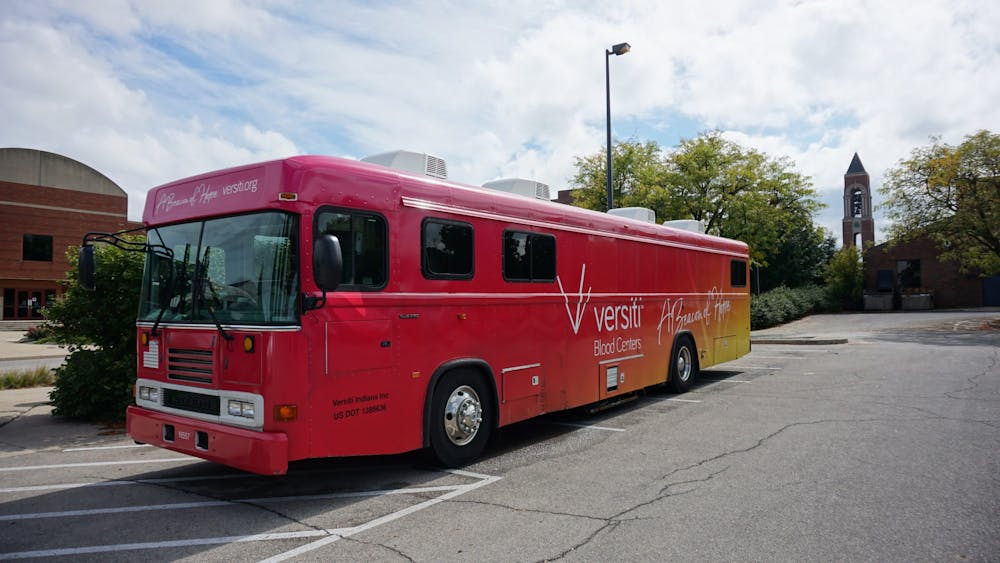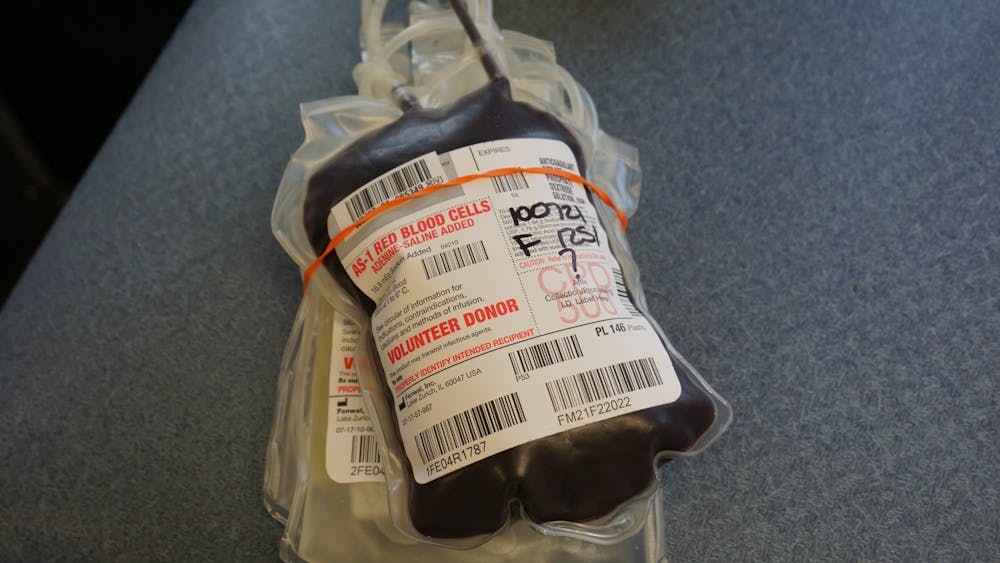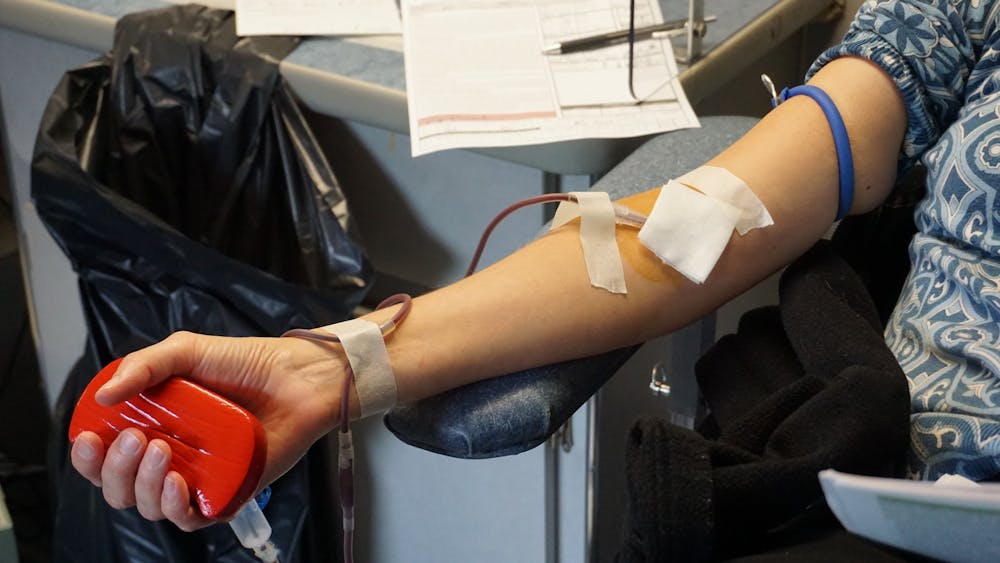Versiti Blood Center of Indiana’s bright pink bus could be seen in Ball State’s R2 parking lot Thursday as the organization visited campus to collect donations.
From 11:00 a.m. to 3:00 p.m., Versiti staff worked inside the bus to collect blood from donors and prepare the donations for transportation to their hospital homes.
Versiti team lead Madison Fields said college campuses like Ball State are a favorite stop for the blood center’s mobile donation bus.
“College students are about 20 percent of our blood supply, so we like to be able to come to colleges and be on campus for the students to be able to donate,” Fields said.

Versiti Blood Center of Indiana's mobile donation center sits in the parking lot near the Robert Bell Building Oct. 7, 2021. Versiti operates ten buses in Indiana, with the goal of making donations more convenient for new donors. John Lynch, DN
The blood drive also served another purpose beyond the donations: honoring the memory of Steve Horwitz, former Ball State distinguished professor of free enterprise in the Department of Economics, who died after a four-year battle with multiple myeloma in June 2021.
Horwitz, who founded Ball State’s Institute for the Study of Political Economy, was the beneficiary of several transfusions during his fight with his disease, said Missy Matthews, project coordinator for the Institute for the Study of Political Economy at Ball State. Matthews invited the Versiti team to visit campus in Horwitz’s memory.
“[Multiple myeloma] is a cancer of plasma and blood, and while he was being treated for this, he received a number of blood transfusions,” Matthews said. “When people asked him how they could help him he said give blood, and so we thought that this would be a fitting way to honor his memory.”
Dagney Faulk, economist and director of research at the Ball State’s Center for Business and Economic Research, was one of the 16 donors who attended the mobile donation drive.
“I knew [Horwitz], I saw him speak several times and saw him casually a couple times, but we both worked in the Miller College of Business,” Faulk said.

A bag full of donated blood sits in Versiti Blood Center of Indiana's mobile donation center Oct. 7, 2021. Versiti's team hoped to schedule donations every fifteen minutes during their four-hour visit. John Lynch, DN
Getting new donors is more important now than ever, Matthews said, as the COVID-19 pandemic saw a gradual decline in donations. Even with a decreased demand for elective surgeries during the pandemic, blood supplies nationwide have declined, causing shortages in some states, said Versiti team lead Elizabeth Savage.
Savage, who has worked for Versiti for nine years, said most hospitals would prefer to have between five and six days of blood on hand for emergency transfusions and elective surgeries, but that number has been closer to one to two days of blood during the pandemic.
“I always say to everyone who asks if we’re low [on blood] that we're always low in a sense because you can only donate once every 56 days, and the whole blood red cells are only gonna show up for 42 days,” Savage said.
Versiti’s mobile team, which consists of ten buses in total, looks to collect blood from around four donors every hour, or around 16 donations in a four-hour stop.
Savage said she hopes drives like the one the university hosted will help turn out more new donors.
“If you’ve never donated, give it a try,” Savage said. “If people that never gave before [donated], it would really help with the shortage.”
Contact John Lynch with comments at jplynch@bsu.edu or on Twitter @WritesLynch.





